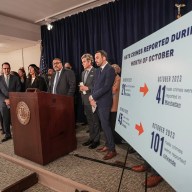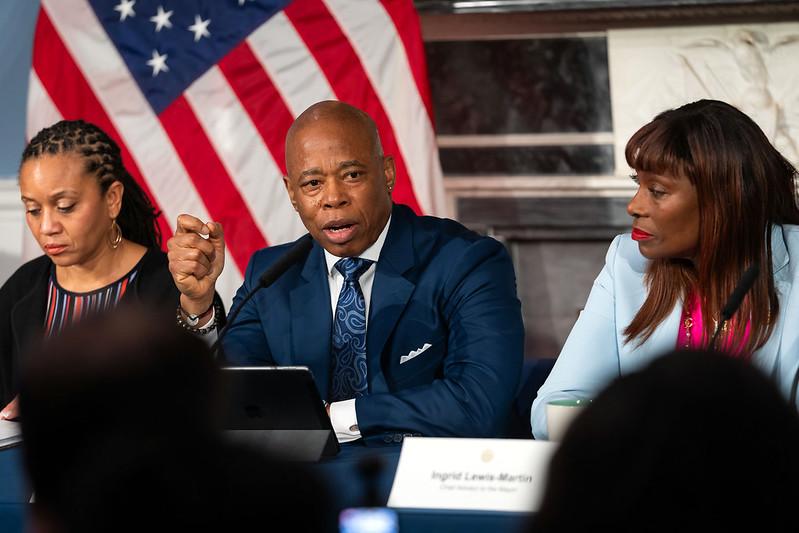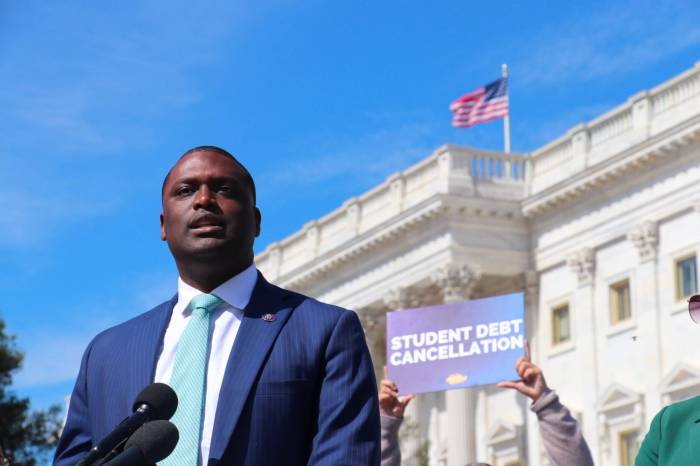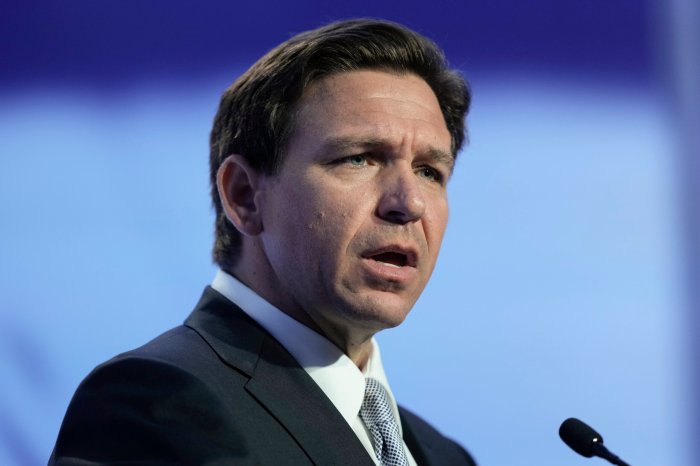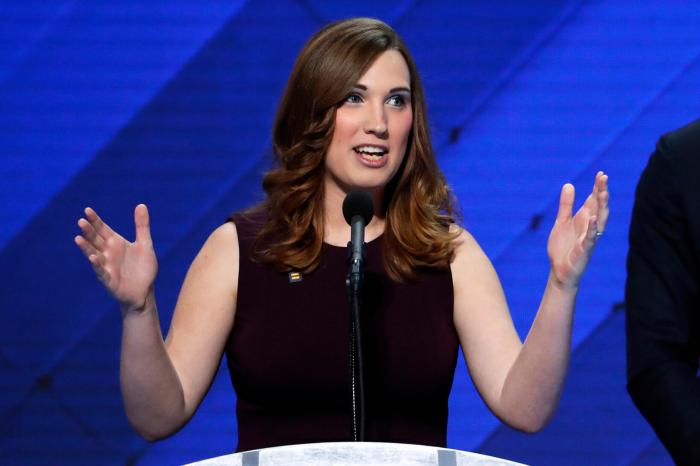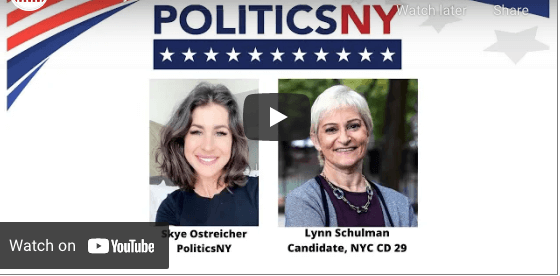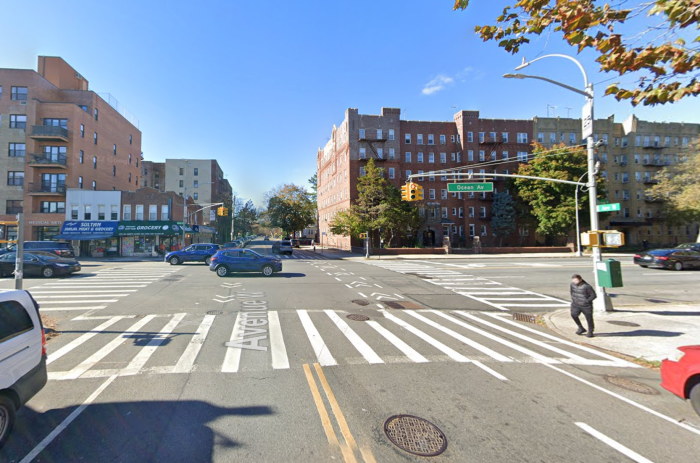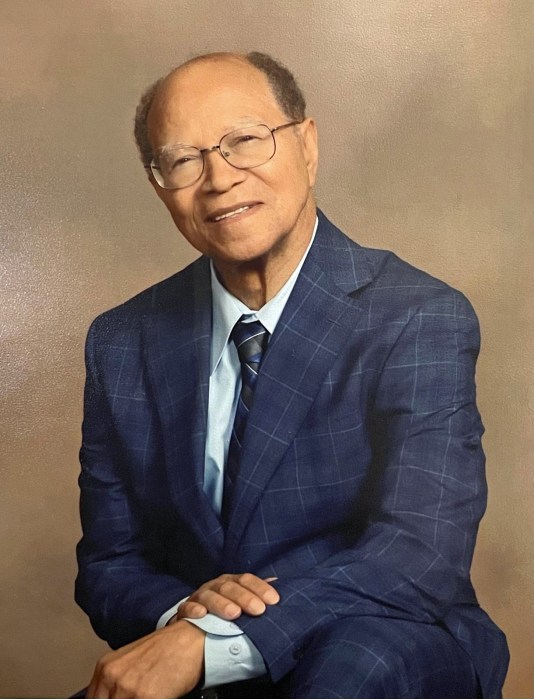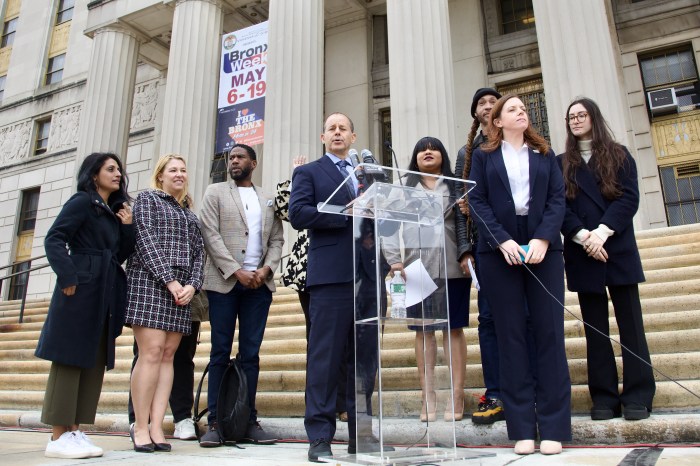Ritchie Torres (r.) campaigns with Bronx Borough President Ruben Diaz, Jr. | TORRES2013.COM
“As a young man of color, I can say that there is a crisis of young men in our society,” said Ritchie Torres, himself 25 but with nearly eight years experience doing staff work for the City Council. “There are hundreds of thousands of young men who do not work, who do not go to school, who have no access to community centers. So what do you think happens when you have young people whose only existence is life on the streets?”
In the case of City Council District 15 — which runs from the Grand Concourse to the east past the Bronx River Parkway in the central portion of that borough — what happens is that, despite dramatic declines in crime citywide going back two decades, there remain “dangerous neighborhoods.”
And, in Torres’ words, there are also “neighborhoods alienated from their government.”
He added, “We need to reconnect our youth to civil society.”
That challenge and the proximity of his own life experience to the crisis he described are what motivate his run for the open City Council seat.
New Voices on the City Council
For an out gay man of his age running in a borough he noted has seen “a wave of social conservatism,” Torres has made impressive strides. He has earned a blizzard of union endorsements — from the Central Labor Council, healthcare workers at SEIU 1999, buildings service workers at SEIU 32BJ, transit and sanitation workers, teamsters, and the United Federation of Teachers, as well as the Working Families Party.
He is also supported by State Senator Gustavo Rivera — a reformer who ousted Bronx legend Pedro Espada, recently sentenced to federal prison for stealing hundreds of thousands of dollars from a non-profit he controlled — and Borough President Ruben Diaz, Jr., the scion of another Bronx dynasty who parts ways with his infamous father on gay rights issues.
Torres, a Bronx-born Puerto Rican, has raised the maximum amount he can spend in the multi-candidate September 10 Democratic primary and is one of only two in the race who qualified for matching city Campaign Finance Board funds. He acknowledged the “objective measures” by which his campaign is doing well, but said, “I am careful not to call myself the frontrunner.”
Still, the main hurdle facing him could well be a candidate — one who currently lives outside the district — who happens to have the same name as the outgoing 12-year incumbent, Joel Rivera.
One of the primary arguments Torres is making in this race is that he should represent the district because his life story essentially represents the district.
“I lived in poverty all my life,” he said. “I grew up in the projects, attended public schools that were under threat of closure. Growing up it was a struggle to put food on our table, to pay the rent. When I speak to people I can say, ‘Your story is my story.’”
From Torres’ telling, the story in District 15 is a tough one. Unemployment tops 20 percent in a city where the overall rate is just above eight percent. Forty percent live below the poverty line, a figure roughly twice that for New York as a whole. In some neighborhoods in the district, up to half of the people live so close to the edge that they are more or less at constant risk for homelessness. Some residents live in “food deserts” where the only available meals nearby come from fast food franchises. The median education level falls shy of a high school degree, he said.
Talking about those youth in the district “whose only existence is on the streets,” Torres said, “I am a working poor kid from the Bronx and I could have easily been one of those young men except that I had a single mom who taught me well and I had mentors.”
One of those mentors was City Councilman James Vacca, who represents the district immediately east of the one where Torres is running. Vacca previously served as a Community Board manager, and while in high school Torres had the chance to assume his duties for a day. Several years later, in 2005, Torres helped on Vacca’s first Council race and has been a staff member since.
Asked whether he began working fulltime for the Council right out of high school, Torres grinned and said, “Well, I worked fulltime, but I wasn’t always paid fulltime.” He also attended NYU, though the costs made it impossible for him to finish his studies. For Vacca, he headed up housing efforts in the district.
“Without a tenant organizer like me, many of the tenants have no means of improving the maintenance of their own buildings,” he said. “Predatory equity,” as Torres described it, has come into the district, with speculators trying to force tenants out of apartments that are under stabilization guidelines in order to bring them up to market rate.
For organizers like Torres, however, there are tools available, especially publicly viewable data documenting housing violations.
“Computerization as part of a broader movement toward data-driven government,” he explained, has meant that housing code enforcement in New York has improved in the past decade or so. “But these tools are only as effective as the elected officials who use them,” he added. “We need the right elected official who knows how to leverage the tools.”
Housing is not the only area in which Torres is able to talk in this sort of specificity. A local Bronx newspaper referred to him as a “policy wonk,” and when asked about that, he responded, “I take ideas seriously.”
One of those ideas — perhaps the big idea of his campaign — is sustainability, a concept he applies in addressing a host of problems that ail the district. Like many youngsters growing up in inner city neighborhoods, Torres suffered from asthma as a kid. In his case, the constant exhaust fumes from the nearby Cross Bronx Expressway led to “never-ending trips to the emergency room.” He wrote about his experiences with asthma on his Facebook page when he earned the endorsement of StreetsPAC, a group that advocates for safer and more livable streets across New York.
In the minds of many, StreetsPAC is associated with the growing popularity of bicycle commuting and the city’s embrace of bike lanes. Torres, however, emphasized he’s not a big bike rider and noted that little effort has been made to bring bike lanes to the Bronx in any event. For him, the endorsement is important because “as a matter of public policy I find it important to fit it into a broader discussion of public health and sustainability and clean air.”
“Nowhere have we seen a greater failure of sustainable development than in the Bronx,” he said. “The City Council should commit itself to building a more sustainable Bronx.” Food deserts, for example, can be addressed in part by looking seriously at opportunities for urban agriculture. He also thinks government should revisit the issue of congestion pricing to ease the crush of vehicles moving in and out of the city every day.
On the question of sustainability, Torres credited a public official with whom he seems to have little else in common. Noting that Michael Bloomberg can be “faulted” on a range of issues from “excessive policing” to his record on education, Torres said, “The mayor has been a leader on sustainability. He set up a framework for creating a more sustainable New York.”
Torres clearly does take ideas seriously — and is betting voters are willing to do the same.
“You have elected officials who are nowhere to be found in the central Bronx,” he said, noting the spate of politicians prosecuted in the borough in recent years. “I’m running in a district that has had nothing but scandal or corruption or dynasties and has never had a progressive voice.”
Pointing to the recent success of politicians like Gustavo Rivera and the bigger role labor is now playing in the borough’s politics, he said, “I see a progressive moment taking hold in the Bronx.”
And to a significant degree that starts simply with elected officials reaching out to their constituents. Explaining he’s met many in the district who in more than 40 years of living there have never met a public official, Torres said, “When I speak to voters, many of them are struck that I’ve come to their door.”
Talking about ideas like participatory budgeting, in which a Council member seeks public input into their allocation of discretionary funds, and a municipal voting bill that would allow noncitizen immigrants to cast a ballot in city elections, Torres said, “My challenge is to take these disenfranchised neighborhoods and reengage them in their own government.”
The young gay candidate is not unmindful of the fact that he’s “running in the Bible Belt of New York City,” but said opposition based on his sexual orientation has not risen above the level of a “whisper campaign.” The primary, he believes, will not be decided by vitriol thrown around by the candidates, in the open or sub rosa.
“In this kind of race, you win it on the ground,” he said. “And so I focus on voter contacts.” Which means finding the 6,000 likely voters among the 60,000 who are registered in a district of 160,000 residents — a task that involves visiting the many four and five-story walk-ups dotting the 15th. Youth probably does have some advantages on that score.
In engaging voters over the long haul, Torres also understands that he must “manage expectations.”
“I am not a miracle worker,” he tells those he meets. “I am a worker, and I will work my heart out.”
He told this reporter, “Hard work is the highest virtue. It’s a greater virtue than intelligence.”













